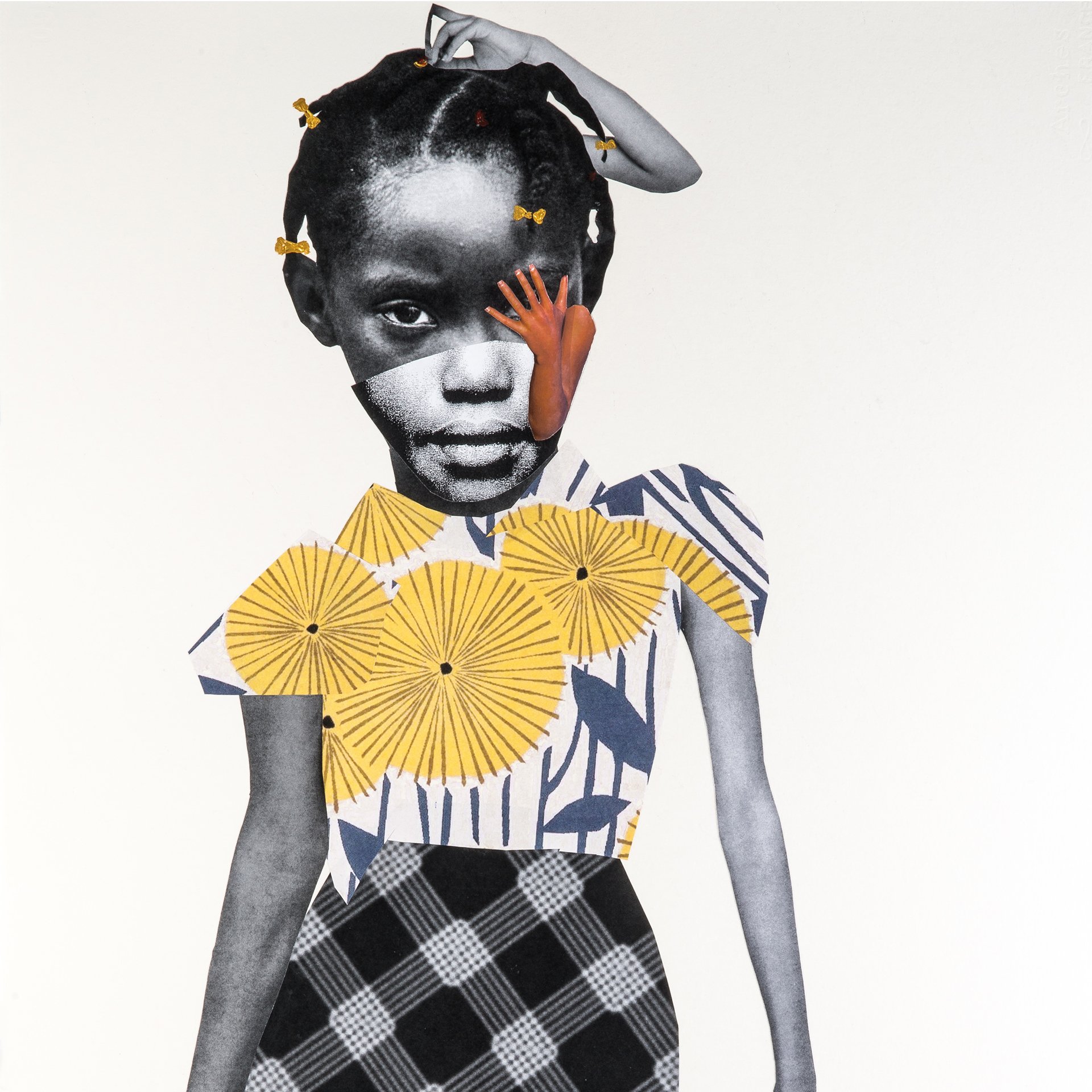
A federal judge has weighed in on an ongoing copyright infringement lawsuit brought by a sought-after contemporary artist against a Brooklyn dealer and an artist in his gallery stable.
The case is complex and so is the ruling. The judge partially denied the defendants’ motion to dismiss the case, because she found that some of the artworks in question are “sufficiently similar” or “substantially similar” for the infringement claims to proceed. But for other works in question, she agreed that “no reasonable jury… could find that the two works are substantially similar.”
The artist who brought the lawsuit is Texas-based Deborah Roberts, who became famous and commercially successful with her collage-based portraits of Black children in various formats and styles. Her work is held in several prestigious U.S. museums and she currently has gallery representation in both the U.S. and the U.K. At auction, her work has achieved a record price of $275,000, set in 2021.
In September 2022, Roberts sued Richard Beavers as well as Lynthia Edwards, an artist from Alabama whom he works with. She accused them of “willful copyright infringement,” along with unfair competition and market dilution.
A side-by-side of Lynthia Edwards and Deborah Roberts’s work, as reproduced in the original complaint.
Roughly six months later, in February 2023, Beavers and Edwards fired back, asking the same court, U.S. District Court, Eastern District of New York, to dismiss the lawsuit.
“This case is about an artist at the height of her career punching down on an emerging artist in order to stifle market competition and eliminate a competitive threat,” Beavers’s dismissal request read. “But the fact that both artists use the collage style or feature children in their artworks does not support a copyright infringement claim. The use of photo-based collage has deep roots in the work of Black American artists, and there is a long line of artists before Roberts who have worked in this same general style.”
A side-by-side comparison of Deborah Roberts and Lynthia Edwards work
that was attached as an exhibit to Roberts’ copyright infringement lawsuit. Image via PACER
As mentioned above, the judge split the decision, agreeing with Beavers and Edwards that nine of the disputed works don’t rise to the level of copyright infringement (see example above), but disagreeing with them on seven other artworks, finding that they bear enough similarity that “the total concept and feel of each collage is sufficiently similar to defeat a motion to dismiss” (see example below).
A side-by-side comparison of Deborah Roberts and Lynthia Edwards work attached to Roberts’ lawsuit. Image courtesy PACER.
In her memorandum and order, Judge LaShann DeArcy Hall noted Roberts’s claims, including that “the confusing similarity between the Roberts Collages and the Gallery Collages have already caused, and will continue to cause, irreparable loss of reputation and goodwill to [Roberts] because customers will cease to distinguish between the [respective collages] and might falsely ascribe the ‘poor quality’” of the Edwards artworks to her own.
In her claim, Roberts also brought up the matter of “trade dress,” the overall commercial image or “look and feel” of a product or service. She said that Beavers’s and Edwards’s use of “trade dress misrepresents the nature and characteristics of” the Edwards’s collages and will ultimately harm collectors of her own work by “diluting the distinctiveness of the trade dress in the marketplace.”
The judge appeared to disagree with Roberts not only on this claim, but on the previous cases or legal precedents that were included in the complaint in an effort to bolster her argument. “These cases are unhelpful to her,” she wrote in a footnote.
Judge DeArcy Hall further gave individual analyses for the works on which she found substantial or sufficient similarities. For instance, she wrote on one comparison summary: “Each collage features a young black girl. Although the backgrounds and attire differ, the poses of the girl in each collage are nearly identical.”
Additionally, the judge noted that Beavers had approached Roberts in 2020 “about selling her collages at his gallery and commented that ‘so many of my clients have you on their wish list of artists whose work they would like to acquire for their collections.'” According to the judge, after Roberts declined his invitation, Beavers “arranged” for Edwards to “discontinue her previous artistic practice so that she could create and sell collages” similar to Roberts’s work.
“The court’s ruling unequivocally advances our copyright infringement claims—especially as the court details the ways Edwards mimics works that Roberts created years earlier and reinforces the roadmap for our ultimate success,” said Roberts’s attorney Gregory Clarick, over email.
“Notably, the ruling speaks to the fundamental issue of our case—Edwards’s copying of Roberts’s creative and aesthetic decisions—despite earlier claims by the Edwards/Beavers legal team that the issue was just about similar ‘styles’ and that both artists work in collage and look to similar art historical sources. Instead, as the court explained, the copyright law protects the ‘total concept and feel’ of an artist’s work and that’s exactly what Edwards has copied here,” according to Clarick.
Meanwhile, Nathan Holcolmb, the attorney representing Beavers and Edwards, told me: “We are pleased that the court has dismissed the bulk of Deborah Roberts’s claims on a threshold motion, leaving only a handful of copyright claims addressed to a tiny fraction of Lynthia Edwards’s substantial body of work. We look forward to presenting the evidence in court to rebut the few copyright claims remaining in the case and vindicate the reputations of Lynthia Edwards and Richard Beavers.”